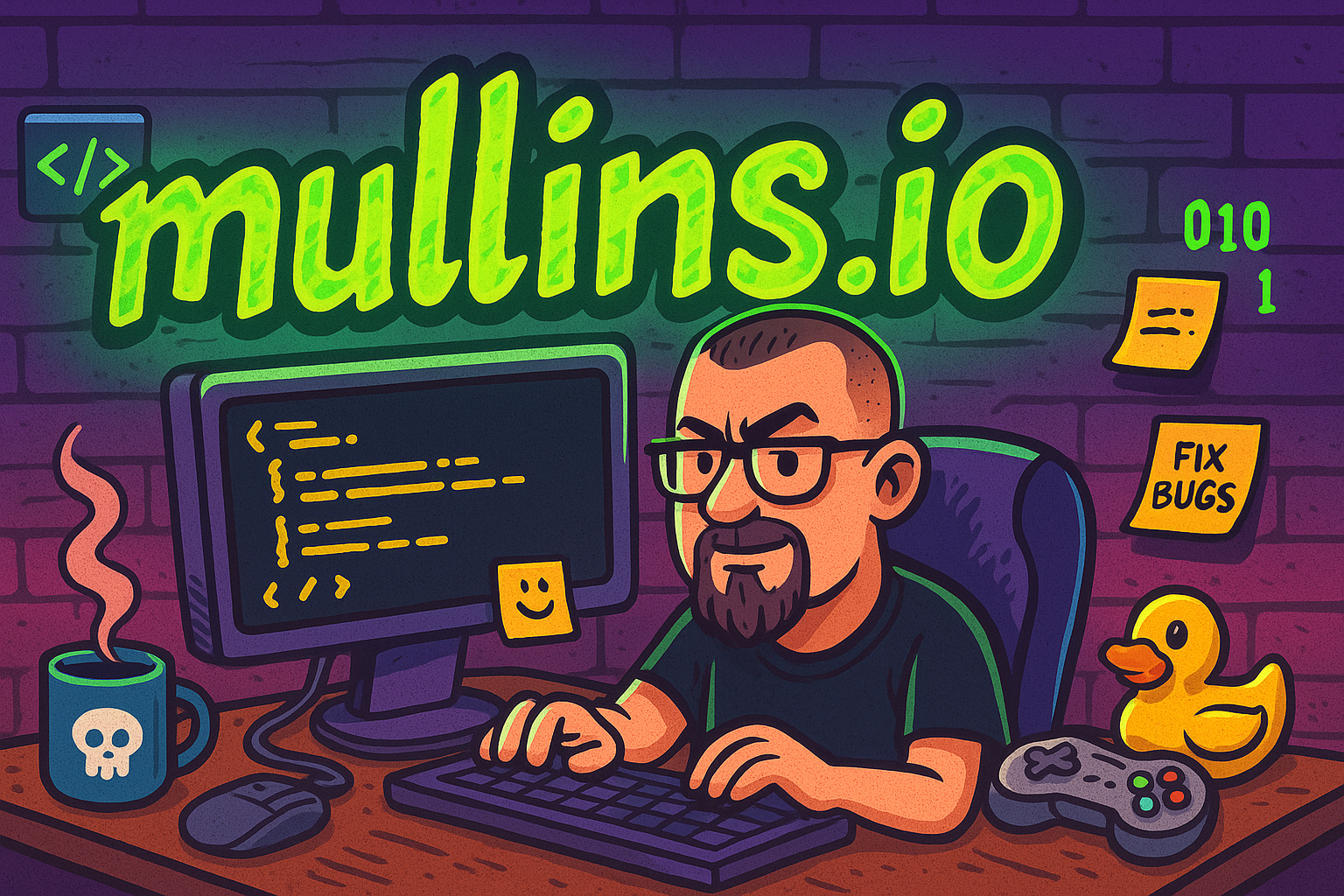The Power of Why: How Purpose Makes You a Better Developer Than Any Framework Ever Could

Every developer knows how to code something.
Few understand why it should be coded at all.
That difference? It’s everything.
I’ve worked with plenty of engineers who could build a full stack app before lunch, optimize queries in their sleep, and debate the pros and cons of TypeScript with religious fervor, but if you asked them why the feature they were building even mattered to the business, they’d freeze.
They could explain every function call and pattern decision, but not why the project existed in the first place.
And that’s a problem.
Because knowing how makes you a good developer.
Knowing why makes you an impactful one.
The “How” Trap
Let’s be honest. Most of us start in the “how.”
We’re trained to think in syntax, patterns, and frameworks. Our entire learning journey is built around it. Tutorials tell you how to build a to-do app, how to set up authentication, how to use React hooks, how to write unit tests. We’re bombarded with step-by-step guides that give us the satisfaction of immediate results.
And that’s not a bad thing. You need to know how to build things before you can build meaningful things.
But the industry has a problem: we’ve created an ecosystem that rewards the appearance of skill more than the application of understanding.
We celebrate engineers who ship features fast, even when those features solve the wrong problems. We obsess over “how” to optimize pipelines, ignoring the fact that no one actually uses the reports they generate.
We mistake motion for progress.
When you live in the “how,” everything becomes a hammer and every task looks like a nail. You stop questioning purpose. You just execute. You build what you’re told. You become efficient but not effective.
And in tech, “efficient but not effective” is how companies burn millions and still miss the mark.
The Cost of Skipping the Why
If you’ve ever built a system that was technically perfect but strategically pointless, you know the pain.
You deploy. It works beautifully. The code is clean, the logs are silent, and the tests pass. You feel good about it.
Then the PM says, “We’re not using that feature anymore.”
Ouch.
It’s not just wasted time. It’s wasted opportunity for impact.
Every hour you spend coding something without understanding why it matters is an hour you could’ve spent building something that does.
When developers don’t understand the “why,” teams start treating engineering like a vending machine. Requirements in, code out. The context gets lost. The reasoning disappears. And the team stops thinking critically.
That’s when you see:
Over-engineered solutions to simple problems
Useless “nice to have” features that nobody asked for
Tech debt born out of assumptions instead of intent
Devs who burn out because they don’t see the purpose behind the work
A team that doesn’t understand why becomes a team that just checks boxes. And nothing kills creativity faster than checkbox culture.
The Shift from How to Why
So what happens when developers start asking why?
Everything changes.
When you understand the “why,” you start to make better technical decisions. You prioritize differently. You ask better questions. You choose simplicity over ego. You stop chasing cleverness and start chasing clarity.
Here’s an example.
Say you’re asked to build a new caching layer to improve API performance. The “how” mindset immediately jumps into solution mode — Redis? Memcached? Which TTL makes sense? Should you use horizontal scaling?
The “why” mindset pauses and asks, Why do we need this?
Maybe you learn that 90% of the API latency comes from one database call that could be optimized with an index instead of a cache. Suddenly, you’ve solved the problem in an hour instead of spending a week designing an overcomplicated caching system that adds maintenance cost forever.
That’s the power of why.
It’s not about overthinking or pushing back on every task. It’s about understanding the purpose behind your work so you can make smarter choices and avoid building complexity for complexity’s sake.
Why Makes You Dangerous (in the Best Way)
Developers who know the “why” behind what they do are dangerous in the best possible way.
They don’t just write code. They influence direction. They can speak the language of both technology and business. They can identify trade-offs, explain reasoning, and prevent bad decisions before they happen.
They turn “doers” into “thinkers.”
And that’s what teams actually need. Not more task machines, but people who can connect dots between user needs, product goals, and technical design.
When you understand why something matters, you can:
- Say no to the wrong things without fear
- Simplify without losing impact
- Communicate better with non-technical teammates
- Earn trust because your decisions are rooted in purpose
That’s the moment when you stop being just a developer and start being an engineer who leads.
The Why Behind Great Code
There’s a secret a lot of veteran developers eventually realize: great code is boring.
It’s not about showing off how clever you are. It’s about building something that works, lasts, and makes sense. But the only way to get there is to understand why the code exists in the first place.
Take tests, for example. Everyone knows how to write them. Fewer developers ask why certain things are worth testing and others aren’t.
Without “why,” you end up with over-tested nonsense that slows delivery and adds zero value. With “why,” you know exactly where to focus your tests to protect real business impact.
The same goes for architecture. Anyone can draw boxes and lines. But only someone who understands why a system needs to scale or why latency matters will design something that holds up under pressure.
“Why” is the difference between architecture that looks good on a whiteboard and architecture that works when the site goes viral.
Bringing “Why” Into Daily Work
So how do you make this part of your day-to-day thinking?
You don’t need a company-wide initiative or some grand workshop. It starts small.
1. Ask Why at the Ticket Level
Before you start coding, ask what success looks like. Who benefits? What problem does this solve? What happens if we don’t build it?
You’ll be shocked by how many times those questions reveal assumptions nobody caught.
2. Ask Why in Architecture Discussions
When proposing a new tech stack or solution, don’t just sell the “how.” Be ready to defend the “why.”
For example, “We’re using Kafka” is fine. “We’re using Kafka because it reduces latency by decoupling services that were previously blocking each other,” is leadership.
3. Ask Why in Retrospectives
When something goes wrong, don’t just document the fix. Ask why it went wrong in the first place.
You’ll start uncovering broken processes, unclear ownership, and weak communication patterns that no amount of coding can fix.
4. Ask Why in Your Own Career
This one’s personal. Stop chasing the next shiny tool just because it’s trending. Ask yourself why you want to learn it.
Are you solving a real problem? Are you positioning yourself for a better role? Or are you just filling a void?
Understanding your own “why” keeps your growth intentional. Otherwise, you’ll spend your whole career chasing frameworks instead of purpose.
The Leadership Connection
When you move into leadership, the “why” becomes your most powerful tool.
The best leaders don’t just hand out tickets. They hand out context.
They ensure everyone on the team knows why something matters, who it impacts, and how it fits into the bigger picture. They don’t hoard information as a form of job security. They distribute it like oxygen.
When you lead through “why,” you create teams that don’t wait for direction every five minutes; they understand the mission and can make good calls on their own.
That’s when real productivity kicks in, not the “we closed 47 Jira tickets this sprint” kind, but the kind where your team moves as one, even when you’re not in the room.
Why Makes You Resilient
Let’s talk burnout for a second.
Developers burn out not just from workload, but from working without purpose. When you don’t understand why you’re doing something, every task feels heavier. Every sprint feels endless. You start to feel like a cog.
But when you know the “why,” that work has weight. You can connect your effort to impact. You can say, “This feature helps real users solve a real problem.” That’s fuel. That’s how you stay motivated even when the code fights back.
Purpose doesn’t make the job easier. It makes it worth doing.
Why Beats Experience
I’ve seen juniors with six months of experience outthink seniors with ten years, simply because they asked better questions.
The juniors who ask “why” learn faster. They make connections others miss. They don’t just memorize solutions; they understand them. And that understanding compounds.
They don’t just know that dependency injection exists. They know why it’s useful, to make code more testable, flexible, and decoupled. That depth of understanding makes them better engineers in less time.
Meanwhile, the “how-only” developers plateau. They can follow instructions but struggle when they hit a problem that doesn’t fit the pattern they know.
The people who win in tech are the ones who stay curious about purpose, not just process.
The Why-Driven Developer Mindset
Developers who operate with “why” as their foundation start to approach everything differently:
They question blindly accepted norms.
“We’ve always done it this way” stops being a shield and becomes a challenge.
They look for simplification, not sophistication.
Complexity becomes a warning sign, not a badge of honor.
They communicate more clearly.
When you understand why, you can explain how in a way others can actually follow.
They grow faster.
They learn principles rather than memorizing specifics, enabling them to adapt to new tools instantly.
This mindset doesn’t just make you better at your job. It makes you indispensable to any team lucky enough to have you.
The Hard Part: Asking Why Takes Courage
There’s a reason many developers don’t do this. Asking “why” can feel uncomfortable. It can feel like challenging authority or slowing things down.
Sometimes, it even gets you labeled as “difficult.”
But difficult people are the ones who prevent teams from walking off cliffs. They’re the ones who stop bad ideas before they drain months of work. They’re the ones who think critically instead of just following orders.
If you’re asking “why,” you’re doing your job. If leadership doesn’t like it, that’s their insecurity, not your failure.
The right teams will value you for it. The wrong ones will expose themselves trying to suppress it.
Why Is the Root of Innovation
Every major tech breakthrough started with someone asking, “Why?”
Why can’t we deploy faster?
Why does this take so many steps?
Why do users drop off at this point?
Why hasn’t anyone built something simpler?
That question is the spark of innovation. The “how” follows later, but the “why” is where it begins.
When you create a culture that values “why,” you foster experimentation and improvement, and people stop being afraid of change because they understand the reasoning behind it.
That’s how teams evolve instead of stagnating.
Knowing Why Keeps You Honest
One last truth: understanding the “why” keeps your ego in check.
We’ve all been guilty of building something cool for the sake of it, the flashy solution, the fancy stack, the 2% performance gain that nobody notices. But when you start from purpose, you stop building for validation and start building for value.
You stop writing clever code and start writing clear code.
You stop designing for yourself and start planning for others.
You stop chasing the next tool and start chasing real outcomes.
Knowing the “why” keeps you humble, and humility is the most underrated skill in software development.
Wrapping It Up
The best developers I’ve ever worked with weren’t the ones who knew every trick or framework. They were the ones who could sit in a meeting, listen to a problem, and say, “I think we’re asking the wrong question.”
Those are the people who elevate teams. Those are the engineers who move the needle. Those are the ones who build things that actually matter.
So yes, keep learning the “how.” Keep honing your skills. But never forget that the “why” is what gives your work meaning.
When you understand both, you stop being just another developer and start being the kind of builder who changes things.
A Quick Note Before You Go
If this hit home for you, if you’ve ever felt stuck between the chaos of coding and the clarity of purpose, I’ve built some guides that might help.
You can find them here: mullinsnick8.gumroad.com.
They’re short, honest field manuals for surviving real-world development. No fluff, no fake positivity, just practical advice from someone who’s lived through the messy parts of this industry and came out stronger for it.
Hey, since you made it this far, you might actually care about becoming a better leader.
Good news: I wrote an ebook that’ll help you skip years of trial and error.




Comments ()